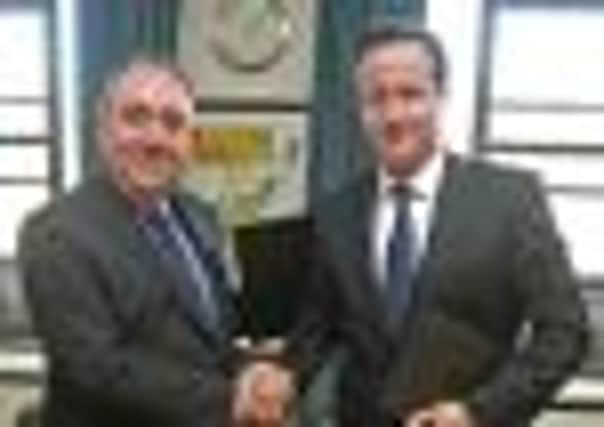Tom Peterkin: The heavy hand of history in evidence


The moment of the occasion was certainly not lost on the First Minister, who does his best to imbue Holyrood events with a special significance.
Drenched in gravitas, Salmond stood up in the Scottish Parliament chamber at 2pm to say that he was “honoured” to announce the referendum date as Thursday, 18 September.
Advertisement
Hide AdAdvertisement
Hide Ad“That will be the truly historic day for our nation. The day when the people will decide Scotland’s future,” Salmond said.
So Scotland’s date with destiny can be inked into our diaries – only 546 days to go now.
The date is slightly earlier than expected for those at Holyrood, who have idled away their days indulging in a guess-the-referendum-date sweepstake.
One loser in the sweepstake was a News International tabloid which exclusively revealed last year that the poll would be held on 18 October 2014. In fairness, all the paper got wrong was the month and, in mitigation, few had thought that the date would be before the Ryder Cup or even the tattie holidays.
Even with a referendum a month earlier than previously assumed, it still seems a long way off. Just as the vote seemed an age away when the SNP’s 2011 election majority made a referendum inevitable. It was the lengthy time-frame that – yet again – formed the basis of Johann Lamont’s contribution at Holyrood yesterday.
Her argument was familiar. According to the Labour leader, Scotland “remains on pause” until the independence question is resolved.
If leaving the UK was the key to Scotland’s prosperity, why did Salmond want to leave it for another year and a half before voting, Lamont asked.
“The truth is Alex Salmond knows if he held the referendum now, he wouldn’t just lose it, he would be routed,” Lamont said.
Advertisement
Hide AdAdvertisement
Hide AdMeanwhile, Salmond was able to return to a familiar refrain, using the occasion to argue that independence would free Scotland from the Tories.
“A ‘no’ vote means a future of governments we didn’t vote for imposing cuts and policies we don’t support,” Salmond said. “A ‘yes’ vote means a future where we can be absolutely certain, one hundred per cent certain, that the people of Scotland will get the government they vote for.”
Those arguments will continue to resonate around the Holyrood chamber, as Salmond attempts to make the substantial inroads the polls suggest he must make in order to win. Lamont may have raised a laugh when she evoked Tony Blair and said: “If the hand of history is on the First Minister’s shoulder, I wish it would give him a shove and he’d get on with it.”
But the time required by Salmond to build up support means that she was guilty of wishful thinking.